Qualifier: The following article shall cite political views which represent, to the best of my understanding, the positions of the Official Remain and Leave campaigns. As such they may not necessarily represent the views held by myself or by any organisations or political parties of which I am a member. My own views shall be indicated throughout.
Are EU In or Out? – Part 1: What is The EU? can be read here
Are EU In or Out? – Part 2: A Brief History of Brexit can be read here
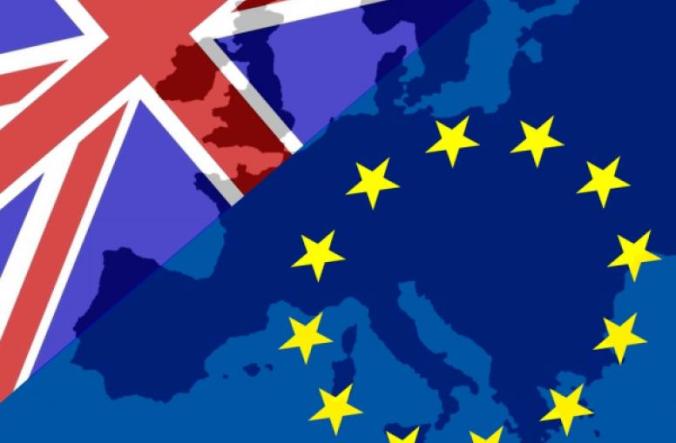
The EU Referendum Issues
I’ll say again that I believe that the “Official” Remain and Leave campaigns in this referendum are almost as dreary and dire as the other. It’s rather depressing how we’re witnessing something as momentous as the potential future of Europe being used as leverage for something as petty as an internal debate about the future leader of the Conservative party. Worse than that though is the attitude towards the issues. It’s almost as if BOTH sides looked at “Project Fear” – the 2014 Scottish anti-independence campaign which, through unrelenting negativity and naesaying, managed to turn a 30 point lead into a 10 point lead and ravaged public trust in both their member political parties (Labour in particular) and in the media which reported for them – and took the very worst aspects of it into their hearts.
It’s been left to the “Unofficial” campaign to speak not only to and for the Scottish dimension (as typified by “The Wee BlEU Book” by Alyn Smith MEP and Ian Hudghton MEP and which I consider to be required reading before the vote) but also for Green and Left voters (as typified by groups such as Another Europe is Possible and DiEM25 which recently held an excellent conference on the Left case for Remain).
This series of articles began as a response to someone I know who was asking for as balanced a case as I could write on the debate. I find that I cannot, given the campaign and my place in it, give a strictly neutral view but I can do as follows. I shall take the primary issues as encountered in the media and shall attempt to lay out the “Official” position on that issue by Leave and Remain. I shall then add my own commentary on that issue. This may result in my agreeing with one or other of the “Official” campaigns or it may have me disagreeing with both and offering an alternative path.
Let’s start with the big, headline one.
Immigration and Borders
The “Leave” campaign view: The UK’s net migration is far too high. The Government promised to reduce net migration to below 100,000 per year. It currently stands at around 333,000 per year and that is largely due to the uncontrolled and uncontrollable migration from the EU, especially the new countries like Romania and Bulgaria. These people are overstressing our already short housing stock and public services like the NHS and our welfare systems whilst also taking up jobs which could have went to an unemployed British person. The willingness of immigrants to work for lower wages is suppressing average earnings of those in work. By leaving the EU, Britain can properly tailor its immigration policies to both lower migrant numbers and pick and choose exactly who we want and need in the country.
The “Remain” campaign view: Without migration of workers like doctors and nurses, our NHS would have collapsed long ago. David Cameron’s successful EU reform package will allow the UK to place further restrictions on EU migrants from new countries like Bulgaria and Romania to ensure that whilst they may be free to move here there won’t be any benefits for them to claim or send outside the UK. Recent new changes to the non-EU immigration requirements ensure that only skilled workers able to earn over £35,000 will be allowed to enter which will compensate for the unskilled EU migration.
The Common Green view: Immigration is one of those topics so charged that it’s difficult to talk about from any side, especially to an audience which may be beholden to rather severe cognitive dissonance around the subject.
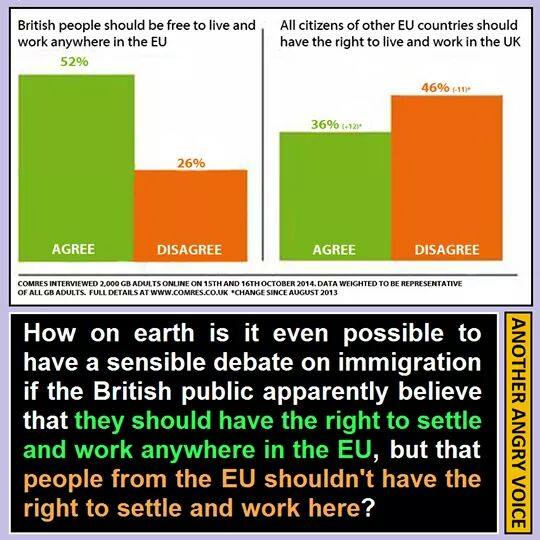
There’s a triangle which can be drawn that states that with a globalist environment an economy is reliant, to greater or lesser extent, on the movement of resources, goods and service providers – jobs, in other words, and workers. Since, in many cases, resources tend to be the least movable of the three the focus then lies on the movement of work and workers. If you have either a fairly protectionist economy or you have a solid industrial policy which roots work in a location then you have to be careful about how you restrict immigration. Too much, and you may find jobs going vacant for lack of the right people with the right skills. Similarly, if you have an economy built on either very mobile industries (particularly low skilled “service” jobs) or a protectionist system which, somehow, has not kept up with global demands then the work can simply move to where the jobs are. Free trade without free movement is a contradiction.
So immigration cannot be disentangled from economic policy, which is an error that both Leave and Remain are committing, focusing instead on either stoking or attempting to assuage the fear of the “other”. Nor can it be disentangled from social policy. Do we really want to live in the country that Remain wants, where potential migrants are told “Do not come to Britain, We can’t stop you, but we shall ensure that you do not enjoy it”?
From an academic point of view, I’m particularly keen on projects which have come out of the right to free movement such as ERASMUS, the EU student exchange program. Whilst not an ERASMUS student myself several people I have studied and worked alongside have been. Previous employment has also taken me to academic institutions which have benefited from it and the blending of ideas which comes when people meet (as a slight digression, permit me to congratulate the EU on its proposal for Open Access to all EU scientific papers by 2020. The free access to knowledge is one of the greatest gifts humanity can give itself). On the topic of academia, whilst both official sides are complaining about migration from Eastern Europe, the EU is busy using its development funds to bootstrap the economies of those countries. Romania, for instance, will soon be home to ELI-NP, the world’s most powerful laser, with an investment of over €350 million. I wonder how many UK scientists will be considering emigrating there for a job.
Free movement is very much a two way street. Whilst “net migration” is a positive value, simply quoting that does much to minimise the large number of Britons who have traveled the continent for work or a better standard of living (remember the example of “Auf Wiedersehen, Pet” from Part 2).
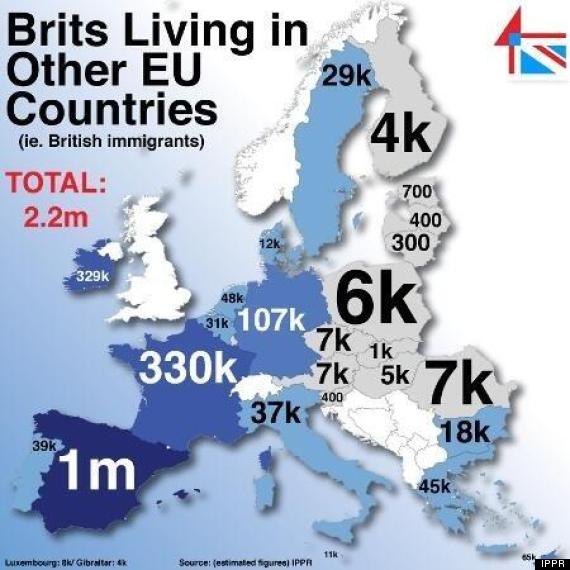
The numbers are quite clear. Last year 297,000 emigrants left the UK and 630,000 arrived. The ratio of EU to non-EU migrants is very nearly 50/50. In net migration terms, EU net migration was 184,000 and net non-EU migration 188,000 (There is certainly some double counting going on whereby some short term migrants appear on both the immigration and emigration lists of a single year). This means that if Leave manage, somehow, to block ALL EU migration then it’s very difficult to see how they can bring the net figure below that shibbolethic figure of “the tens of thousands” . It’s worth noting that the official reporting makes it clear that the “unprecedented” increase this year had far more to do with the drop in emigration from the UK than any increase in inward migration, even accounting for the addition of newly unrestricted Romania and Bulgaria.
One aspect of the immigration debate which particularly disturbs me is the conflation of EU membership and non-EU migrants. I’ve heard many folk complain about the situation in Calais, where non-EU migrants trying to reach Britain have ended up clustered in France, as if simply leaving the EU would somehow prevent the entry to the UK of migrants who are currently prevented from entering the UK. I’ve also heard more than a few people whose concerns over migration are strictly limited to people from Arabic or SE Asian (read: Muslim) countries as if, again, the EU is somehow limiting or restricting the UK’s immigration policies regarding non-EU countries (Hint: It’s not). I don’t particularly blame the individuals involved in this regard, rather the kind of dog-whistle politics which is stoking up that fear of the “other”. Those who use it for their own gain can never really control that kind of thing once it’s unleashed. Another thought is for those who demand that immigrants “integrate”, complain about “ghettos” developing but also simply cannot abide any of “them” living anywhere near them (It’s an interesting statistic that those who are more likely to vote for anti-immigrant policies are also least likely to have regular day-to-day interaction with a foreign born national).
I would ask these folk that if they cannot bring themselves to integrate their lives with another person, why should they expect others to do so? There’s a deep contradiction there too.
On Remain’s current policies towards those non-EU migrants, I personally find the £35,000 salary floor for Tier 2 migrants to be an example of sheer socio-economic illiteracy. The level of the floor was quite clearly decided by someone who has never actually left the City of London and expects that to be a “reasonable” salary. In reality, some 80% of UK citizens do not get paid this much. I have two STEM degrees. I speak English fluently. I have worked in the high tech manufacturing industry. By those measures I seem to fit the profile of the kind of person the “targeted immigration policy” camp would like to attract. I have yet to work a job which paid me more than £35,000 per year (and I’m very far from unique in this regard within my network of peers). Apparently, according to the Conservative Party, the only reason I am fit to live in the UK is by accident of birth. This is viscerally unappealing to me. The idea that we can somehow just get by without immigrants now that we’ve taken from them the skills and ideas that they brought, that “we’ve got the recipe [for curry]” is beyond lampoon.
On the idea that migration impacts jobs and wages or even that it swamps public services, it’s frankly just nonsense. Many studies have shown that any negative impact is not guaranteed, is temporary if it occurs at all, and rebounds quickly especially when coupled with a decent economic policy (I think I can see the weak link there…).


Image source here.
Once one gets over the initial thought that “immigrants could steal my job”, the truth becomes rather self evident. Not all immigrants are here TO work. 30% of all immigrants to the UK are here to study and 15% are accompanying or joining family members. Of the 40% of immigrants who are here to work, not all are content to be employees. 36% are here to become self-employed. To start a business of some description. If the average business started by one of these entrepreneurs employs just 2 additional people then all the jobs required for the entire immigrant population are catered for. Whilst 76% of all UK SMEs (i.e. Immigrant and Briton owned) employ only the owner, the overall average employment per SME is 2.9 people which is why the unemployment rate in the UK is not at all correlated with immigrant population. Similarly, wage suppression is easily countered by a decent minimum wage (another EU policy I might add) and the increased demand for goods and services from the new workers drives up wages for those able to supply that demand. If public services are underfunded after these new workers are paying their taxes then it can’t be their fault, rather perhaps we should be speaking to those who seem to think that the best thing for the UK is to sell off all the public services to their rich mates to be asset stripped or run at a profit.
It’s also more than a bit rich for Tories to be suggesting that immigrants have driven down the incomes of the lower paid. Not only, as shown above, is it simply not true, it is a distraction from the impact of their own ideological Austerity programs.
There is a good short video on the economics of immigration by Crash Course below. Whilst it does take a US-centric view, the examples and lessons are widely applicable.
And finally, we have to look at the situation of refugees.
There’s much that the EU could be doing so much better here. My travels last year led to me being a regular client of the Munich to Budapest train on my way between Germany and Austria.
It was on one of my later trips that, on the trip back to Munich, that I met a young man from Syria. He had been a white-collar office worker in Homs until he came home from work to find his apartment block a pile of rubble. He had no idea which side of the conflict was responsible but after managing to pull some documents and personal items out of the pile which that morning had been his home he decided it was time to get out. I’m not sure of his route to Europe (he was understandably rather cagey about such details) but here he was, trying to get to Germany to start over – quite emphatically Germany. Not the UK. Germany was where the jobs were. He had some family already there and he could speak German better than English. I often wonder how he is getting on. He was one of the lucky ones, even amongst the ones who had made it that far, for a couple of weeks later Europe started to close its internal borders for the first time since Schengen and free movement started break down. On my final trip to Austria, in December 2015, my work had me fly to avoid the barriers.
Yes, the EU is struggling over how to deal with the refugee crisis. National interests are, at least somewhat, overwhelming the debate (and the UK is not helping by standing off and only reluctantly doing anything at all). I’m not sure that the structures of the EU ever quite imagined that a situation like this would evolve (perhaps a mass movement between members, but not from outside). I do know this though. Once the situation in Syria and other warzones is resolved (as they will be, sooner or later) many of those refugees will want to return home. They will also need to rebuild their country. They’ll need help to do so. They may well ask construction and other companies from Europe to take part in that rebuilding and they may well favour companies which have ties to Syria, who have workers who are multi-lingual, who have family between those countries and have worked with the companies in those European countries from which they come. It may be that the UK is not exactly at the top of that particular list…
So, to wrap up, I’m personally rather disheartened by BOTH sides of the “Official” campaign on the immigration issue. The fearful isolationism of Leave won’t bring the UK to a better place and nor will Cameron’s vision of a UK in Europe, but only barely and only when it wants to be. Immigration, and emigration, should be seen as an investment not a cost. I have greatly valued my ability to travel freely across Europe and would wish to continue to do so. If there’s any way that I can help Europe to maintain that tradition then I shall wish to Remain to do so.

Discover more from The Common Green
Subscribe to get the latest posts sent to your email.
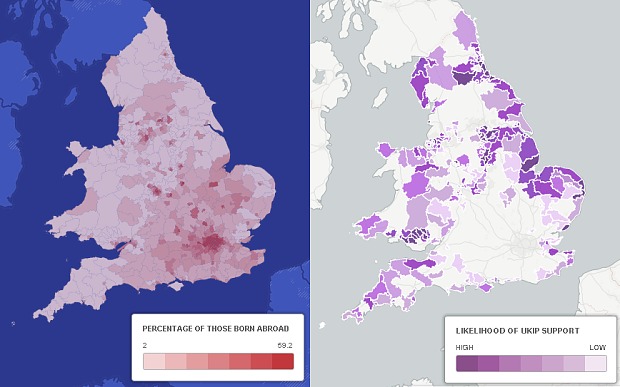
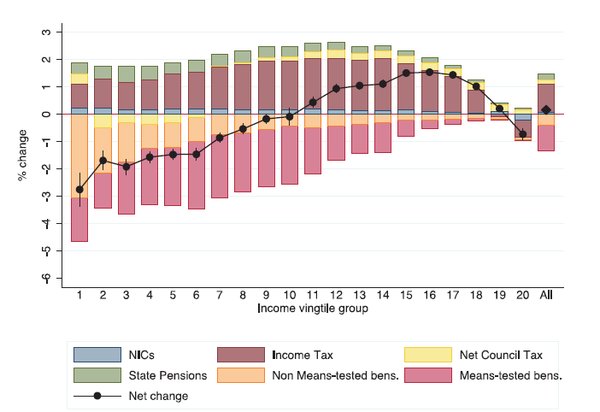

Great post. Learned a lot from it.
LikeLike
Pingback: Are EU In or Out? – Part 5: The Issues – Brexit Negotiations | The Common Green
Pingback: Are EU In or Out? – Contents Page | The Common Green
Pingback: Are EU In or Out? – Side Note:- The Leaving Framework | The Common Green
Pingback: Are EU In or Out? – Part 6: The Issues – Sovereignty | The Common Green
Pingback: Are EU In or Out? – Part 7: Final Thoughts | The Common Green
Pingback: QuEUing up for Membership | The Common Green